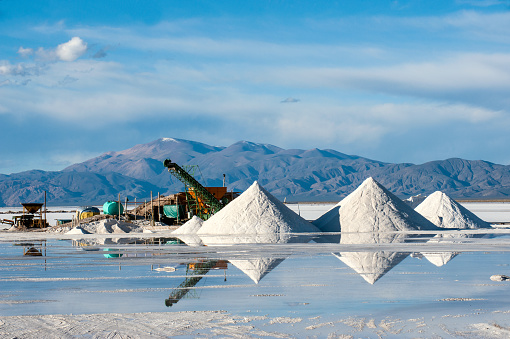According to Stanford University, rechargeable and disposal batteries generate most of the growth in demand for this silver-white metal. Thus, when most people hear about lithium, they think of the lithium and lithium-ion batteries that power smartphones, computers, other devices, and electric vehicles.
At the same time, plenty of industries rely upon lithium. Besides batteries, industrial applications include eyeglass lenses, prescription medicine, aircraft parts, and ceramics. Many prominent applications also call for lithium’s use in magnesium, cobalt, copper, or aluminum alloys.
Some potential benefits of adding lithium to alloys include purity, resistance to corrosion, strength, and lightness. In turn, lithium doesn’t detract from the beneficial properties of other metals, like conductivity or strength.
Beneficial Properties of Lithium for Manufacturing Applications
Lithium producers find minerals that contain this metal in igneous rocks and mineral springs. In the late 1700s, scientists discovered how to isolate large quantities of the element by electrolysis of molten materials by the middle of the 1800s.
Other unique properties of lithium include:
- This silver-white, alkali material stands out as the least-dense metal and is listed first out of any metal on the periodic table of elements. It’s so soft that a knife can cut it at room temperature.
- Lithium melts at just over 180 Celsius and only boils at a temperature of 1342 C. The element burns white but gives flames a reddish hue.
In nature, lithium always combines with minerals. It doesn’t naturally exist as an elemental metal because of its extreme reactivity. For instance, lithium reacts with water, carbon, nitrogen, and hydrogen and is highly flammable and corrosive on its own. However, when used in alloys, lithium can purify the final product, add no additional reactivity, and provide the final product with other beneficial properties.
Lithium as an Alloy Degasser
Alloy producers add lithium to purify the final product. This step, called degasification or deoxidation, helps keep the alloy free from air holes that may cause it to become porous or crack. These qualities make lithium an ideal element for purifying many alloys. For instance, lithium can attract nonmetallic particles from other refined metals, such as iron, zinc, copper, and nickel.
Copper-Lithium and Aluminum-Lithium and Other Alloys
Lithium melts entirely into alloys without causing unwanted reactions or property changes. For example, an alloy with two percent lithium added to 98 percent copper won’t change copper’s conductive properties.
When added to nickel, lithium increases the material’s strength and makes it more resistant to corrosion. Lithium also reduces impurities when added to cobalt.
Lithium benefits aluminum alloys substantially. For instance, lithium’s light in weight, so it won’t make alloys heavier. At the same time, this element also makes the alloy stronger than aluminum alone. The physical and tensile strength of aluminum alloys can make them comparable to some types of steel. The aircraft industry commonly takes advantage of these benefits by using a lithium-aluminum alloy to produce airplane parts.
Why Buy Lithium and Lithium Alloys From Belmont Metals
Based in Brooklyn, NY, Belmont Metals sells lithium, lithium-copper, and lithium-aluminum alloys. Manufacturers can choose slabs, ingots, polished products, and custom forms. Shop online or contact Belmont Metals to discuss your requirements.

